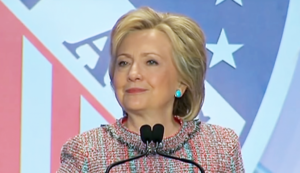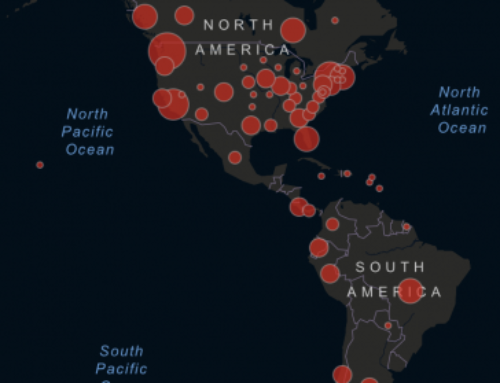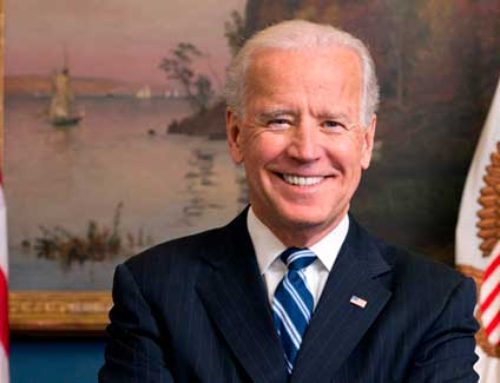What Will Hillary Clinton Represent for Latin America?
By Pilar Frank O’Leary
 In speaking about immigration reform at the Democratic Convention in Philadelphia, U.S. presidential nominee Hillary Clinton stated,
In speaking about immigration reform at the Democratic Convention in Philadelphia, U.S. presidential nominee Hillary Clinton stated,
“We will not build a wall [along the U.S.-Mexico border]. Instead, we will build an economy where everyone who wants a good job can get one. And we’ll build a path to citizenship for millions of immigrants who are already contributing to our economy…I believe that when we have millions of hardworking immigrants contributing to our economy, it would be self-defeating and inhumane to try to kick them out. Comprehensive immigration reform will grow our economy and keep families together — and it’s the right thing to do.”
These were not easy words to speak in a climate where her opponent Donald Trump and others have generated such strong anti-Latino and immigrant sentiments. Hillary Clinton rightfully criticized Trump for his statements against Latinos, including his declarations that most Mexicans are criminals and shouldn’t be allowed in the country and that an American judge couldn’t be fair because of his Hispanic heritage. Yet immigration reform seems to be gaining momentum. The Congressional Budget Office has projected the immigration bill passed by the Senate in 2013 would boost the economy and reduce the federal deficit. Hillary seems to see the reform as both a moral imperative and an overall plus to this for the U.S. economy and her stance seems to bode well for Latino immigrants and others should she achieve the US presidency.
There is little doubt that overall, both Hillary and her husband have been supportive of Latinos in the U.S. Outside of being supportive of immigration reform, Bill Clinton appointed Hispanics to high level positions throughout his administration and both Clintons have been very supportive of Latino education initiatives and bilingual education.
Yet what will a Hillary Clinton administration mean for the United States’ relationship with Latin America?
Latin America is a complex region that is highly interdependent with the U.S. politically and economically and yet is too often ignored, undermined and relegated to second place in U.S. foreign policy realms. And if Brazil and Venezuela have provided us with any insight, it behooves the U.S. to remain friendly with our neighbors to the South and ensure they remain allies. Russia, China, Korea and Europe are heavily investing throughout Latin America and political alliances can rapidly shift under regimes antagonistic to the U.S. Venezuela is obviously a glaring example and governments in Bolivia and Ecuador, whose president offered to harbor Edward Snowden, have not been the biggest U.S. fans to put it mildly. In beginning a new U.S. presidential administration, ties with Latin America should be given greater priority. There are great advantages to be reaped from a deepened partnership between the U.S. and Latin America based on mutual investment, respect and cultural understanding—one that is a departure from the uninformed, condescending attitudes of the past. Hillary Clinton may be the president to get us there.
Her Record in Latin America to Date
Hillary Clinton has accumulated a strong record towards Latin America during her career. As Secretary of State, she worked closely with President Obama on initiatives to enhance U.S. leadership in Central and South America while also recognizing their emerging markets as key players in the global economy. She has supported Plan Colombia, which despite criticism from certain quarters, has not only helped put Colombia on a path towards political stability and strong economic growth but turned the country into the one of—if not the—strongest U.S. allies in the region. Recently, Colombia and the United States celebrated the 15th anniversary of Plan Colombia with a high profile official White House visit by President Juan Manuel Santos. And it appears that after a decades long war, the country is finally achieving some modicum of peace. I advised the Colombian Embassy on the presidential visit and was amazed to see how many senior leaders from the U.S. public and private sector attended to show their unequivocal support for the success of the cooperation, one of the few foreign policy successes the U.S. has had in the last several decades.
Poverty
Hilary Clinton has also demonstrated she is not afraid to take a tough stand on sensitive issues in Latin America. Along with expressing her outrage over last year’s assassination of Venezuela’s regional parliamentary opposition leader, Luis Manuel Diaz, Clinton has expressed the need to combat poverty in Latin America. According to recent World Bank reports, there are still high rates of poverty in Latin America with one in five Latin Americans living in chronic poverty since last year, which is 130 million people, compared to 45 million people living under similar conditions in the United States. At a recent event Clinton observed,
“[In 2009], economic inequality in Latin America was still among the worst in the world. I argued that a key challenge in the years ahead would be to make sure that the benefits of economic growth were broadly shared and that the region’s democracies delivered concrete results for their citizens. Rather than defining economic progress simply by profit margins and GDP, our yardstick must be the quality of human lives, so we should be measuring whether families have enough food on the table, whether young people have access to schooling, whether workers have safe conditions on the job.”
Hillary may have the ability to direct deeper and smarter collaboration and investment by the U.S. to combat poverty in the region—conditions that often force families to flee to the United States along with political instability.
Crime and Security
With respect to violence in Latin America, Hillary has firmly supported certain governments’ policy efforts to combat crime, as in the case of Colombia. In recent years, violent crime rates—often tied to the illicit drug trade–have increased in both the US and Latin America, showing that there is an urgent need for action and collaboration. Nowhere is this more prevalent than in Central America, where violence and instability is on the rise. In countries such as Honduras, El Salvador and to a lesser extent Guatemala and Nicaragua, Clinton believes that a Plan Colombia-style initiative to provide military and economic support may ultimately prove to be the best model to support these countries. However, this approach has its detractors who claim that Hillary is trying to solve societal and security issues with over-militarization which can lead to major human rights abuses. In naming Tim Kaine as her VP running mate, Hillary has chosen a legislator who has spent time in Latin America as a Catholic missionary in Honduras, speaks Spanish and is sensitive to cultural and political issues in Central America and the rest of the region. This potentially bodes well for a new outlook for and sensitivity towards Latin America from a Hillary Clinton administration.
Economy
Hillary Clinton believes that the relationship between the United States and Latin America is interdependent and must continue to be embraced as an advantage. Her plan, if elected president, is to build on the “power of proximity,” not from a global perspective but from the perspective of sharing common interests, values and goals. In proposing these ideas, Clinton will have the ability to strengthen economies across in our neighboring countries in Latin America. She has said that “closer ties across Latin America will help our economy here in the U.S. and strengthen our hand around the world”. Indeed, across numerous sectors, U.S. investment, industry and innovation is welcomed into Latin America from food and beverage companies to banking, energy and the auto industry.
The U.S. tech sector, which Hillary Clinton is a big proponent of, has been growing rapidly in the region. Unlike China (where Facebook is banned and Uber recently had to shut down its operations), most Latin American countries have generally embraced the entrance of U.S. tech companies into their societies and economies, though they will need to be mindful of tax, privacy and other regulatory issues as they expand. The revelation that the U.S. was spying on Brazilian President Dilma Rousseff’s emails not only led to her cancellation of a White House visit but has caused the country’s regulators to take a hard line towards US tech companies that don’t respect their privacy laws. Other countries in the region have taken note. Hillary Clinton and her administration—as well as US companies across the board—will need to learn to demonstrate transparency and respect while pursuing economic advantage.
Climate Change
Hillary Clinton has said she wants to work with Latin America to produce clean, renewable energy and combat climate change. She has commended several Latin American leaders for their valiant efforts in thinking of innovative ideas to combat climate change and expressed her desire to collaborate with them on reaching their untapped potential of developing renewable technologies to affect the region’s and the world’s economic health. This represents a good opportunity for energy leadership, investment and innovation on the US side in its own back yard.
Trade
In addition, Hillary Clinton has cautiously supported trade agreements with Latin America, ranging from NAFTA to CAFTA to the free trade agreements with Colombia, Chile, Peru, Panama and other nations in the region. She has sometimes flipped her position on these agreements as she did in the case of NAFTA first opposing it and then supporting it given extreme pressure from U.S. labor unions and other groups. Overall though, she seems to support trade agreements as long as certain US protections on labor rights and other issues are preserved. But there is no doubt she’s still cautious. Her campaign speech at the convention focused on the importance of supporting “things made in America” and criticized Trump for “making ties in China not Colorado…suits in Mexico not Michigan…furniture in Turkey not Ohio…picture frames in India not Wisconsin”.
The next big chapter in the trade arena which affects Latin America is the Trans Pacific Partnership (or TPP). The proposed agreement, which has been signed but not ratified, involves 12 countries: the US, Japan, Malaysia, Vietnam, Singapore, Brunei, Australia, New Zealand, Canada and 3 large Latin American economies: Mexico, Chile and Peru. The pact aims to deepen economic ties and trade between these nations, slashing tariffs and fostering trade as well as a closer coordination on economic policies and regulation. The TPP has serious critics in the U.S. (Bernie Sanders’ faction the most vocal among them) who allege that the U.S. government secretly plans to effect major changes in trade policy that will negatively impact the US labor force–simply to keep China at bay. Congress has granted President Obama “fast-track” authority over the deal, which only allows lawmakers to either reject it or ratify it. To take effect, the deal has to be ratified by February 2018 by at least six countries that account for 85% of the group’s economic output—which means that Japan and the US will need to support it. Given we are six months away from having a new US president, it will likely be Hillary or Donald Trump who will need to make the decision as to how the US proceeds with the TPP and the implications of that for U.S. trade cooperation with Latin America.
Women
Hillary Clinton has famously said, “Women’s rights are human rights”. On minorities and women, Clinton has also made a stand in Latin America. Earlier this year, I attended a conference organized by the Atlantic Council’s Adrienne Arsht Latin America Center at which Clinton had agreed to speak. During her keynote address Clinton strongly expressed her goal to have closer ties with Latin American countries and praised the region’s increase in women in leadership, as well as their leap in education. Clinton expressed her enthusiasm for the increase in women legislators, with women presidents and prime ministers being elected in several Latin American and Caribbean countries—indeed, well before the United States. In some countries girls have surpassed boys in education enrollment and are earning higher learning degrees at a faster rate. She observed,
“In 1988, I actually spoke about women’s leadership at a conference in Montevideo. Back then, according to the statistics, women in Latin America were trailing men in education, economic and health indicators and security. Many countries were still emerging from decades of dictatorship and political violence. Seventeen years later, there’s been enormous gains in Latin America and the Caribbean.”
However, Clinton has stressed that while Latin America has made much progress, there is still much to be done to achieve true gender parity in what is a highly machista society where violence against women is still a serious issue in some communities and where in almost every industry in the private sector from media to business and finance, men are still by and large the only executive decision-makers. Clinton reminded the panel that closing the gender gap in workforce participation will have the ability to increase global GDP by 12 percent by 2030. She also added that increasing the amount of women farmers would increase agricultural output which result in decreasing world hunger. “So advancing the full participation of girls and women isn’t just the right thing to do, it’s the smart thing as well,” Clinton said. Here too Clinton will be a great example and can provide real leadership for Latin America.
********************************************************************************************
As a young lawyer working in the Buenos Aires office of JP Morgan, I had the opportunity to meet Hillary Clinton when she came through Argentina en route to the conference in Uruguay. My then-fiancé/now husband had worked in President Bill Clinton’s administration and had told me how incredibly smart and globally minded Hillary Clinton was—and how well she connected with people one-on-one. Indeed, I was surprised at how extremely warm and personable Clinton was and how much she knew how about Latin America. She was not only interested to hear about my background and what I was doing, but moreover, she was eager to know about what was happening in Argentina, how U.S. businesses were facing there and more about our bank’s activities in the other Latin American markets we were operating in. I was impressed.
Clinton has stated that in working with other countries to help them achieve their goals will help the United States and our neighboring countries towards economic prosperity, as well as gain leadership across the globe. While deep-seated problems remain, several Latin American countries have healthy business climates, favorable trade agreements and energy markets that are either open and reformed or are undergoing reform. Colombia is relatively stable with a strong economy and pro-US stance, Cuba has opened up, Peru has a new reform-minded president in Pedro Pablo Kucynski, President Mauricio Macri has brought new hope to U.S. reengagement with Argentina, Chile remains a regional economic leader and Costa Rica, Belize and yes, even Panama (despite its recent woes with the Panama Papers), are stable and growing. Yet crises in El Salvador, Honduras and South American countries such as Brazil and Venezuela persist. US relations with Mexico, facing its own crises, will always be both a difficult, delicate dance and a symbiotic relationship. Bilateral partnerships and cooperation across the board, supported by both the private and public sector will be critical to making sure that Latin America remains the ally and the opportunity it should be for the US, rather than a forgotten, second-tier continent.
Here’s to hoping that if she becomes president, Secretary Clinton stays true to her word and has the ability to improve relationships with countries in Latin America which are fighting hard to preserve our common interests, goals and values. It will indeed take a village.
Pilar Frank O’Leary is Founder and President of PFO Advisory Group, a consulting firm which provides policy, partnership and business development strategies for organizations working with Latin America and Spain.





